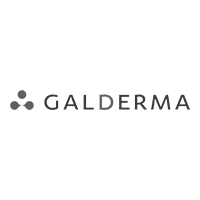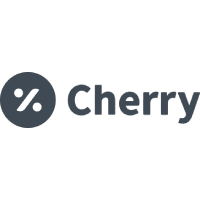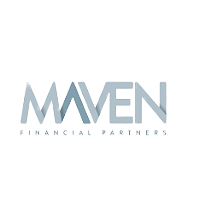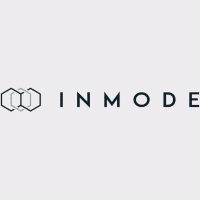
In today’s digital world, customers can access more information and options than ever before. Therefore, businesses that prioritize customer satisfaction can enjoy higher retention rates and attract new customers through positive word of mouth. This is particularly crucial for digital marketing agencies, as customer satisfaction can make or break their reputation. In this blog post, we’ll discuss essential objectives and strategies that digital marketing agencies should prioritize to boost customer satisfaction.
Objective 1: Understanding Your Customers’ Needs and Expectations
One of the most crucial objectives for any digital marketing agency is to understand its customers’ needs and expectations. This involves developing a deep understanding of the target audience, including their demographics, interests, and pain points. Digital marketing agencies should also take the time to research their customers’ competition to gain insights into their strengths and weaknesses.
Strategy 1: Conduct Surveys and Feedback Sessions
One of the most effective strategies for understanding your customer’s needs and expectations is to conduct surveys and feedback sessions. This can help digital marketing agencies to collect valuable insights into what their customers want and how they can improve their services. It’s essential to ensure that the surveys and feedback sessions are structured and ask the right questions to gather the most relevant information.
Objective 2: Providing Quality Services and Deliverables
Another critical objective for digital marketing agencies is to provide quality services and deliverables to their customers. This includes ensuring that all deliverables meet or exceed the customers’ expectations and are delivered on time. In addition, it’s essential to provide clear and transparent communication throughout the project lifecycle.
Strategy 2: Establish Quality Assurance Processes
To ensure that all deliverables meet or exceed the customers’ expectations, digital marketing agencies should establish quality assurance processes. This involves setting clear quality standards and procedures, conducting regular checks and reviews, and implementing corrective measures when necessary. Quality assurance processes can help digital marketing agencies to improve the quality of their services and deliverables consistently.
Objective 3: Providing Excellent Customer Service
Providing excellent customer service is another crucial objective for digital marketing agencies. This involves being responsive to customers’ queries and concerns, providing timely updates, and addressing any issues that may arise promptly.
Strategy 3: Establish Customer Support Channels
To provide excellent customer service, digital marketing agencies should establish customer support channels such as email, phone, and live chat. It’s essential to ensure that these channels are easily accessible and that customers receive prompt and helpful responses. Additionally, it’s crucial to provide customers with regular updates throughout the project lifecycle so they know what to expect.
Objective 4: Continuous Improvement
Finally, digital marketing agencies should prioritize continuous improvement to ensure that they’re always providing the best possible services to their customers. This involves regularly reviewing their processes, strategies, and outcomes and making necessary adjustments.
Strategy 4: Conduct Regular Performance Evaluations
To continuously improve, digital marketing agencies should conduct regular performance evaluations. This involves reviewing key performance indicators (KPIs) such as customer satisfaction rates, retention rates, and project success rates. Based on the results of the performance evaluations, digital marketing agencies can identify areas for improvement and implement necessary changes.
In addition to the objectives and strategies mentioned above, there are other ways digital marketing agencies can boost customer satisfaction. For instance, providing personalized services tailored to individual customer needs can create a more positive experience. Also, being transparent with pricing and project timelines can help build trust and reduce misunderstandings.
Another way to improve customer satisfaction is by offering additional services that complement digital marketing, such as website design, social media management, and content creation. This allows agencies to become a one-stop-shop for all their customers’ digital needs, increasing customer retention rates and driving revenue growth.
Finally, investing in employee training and development can also improve customer satisfaction. Well-trained and knowledgeable employees can provide better services and experiences, leading to increased customer satisfaction and loyalty.
It’s also important for digital marketing agencies to measure customer satisfaction to ensure they are meeting their objectives and making progress. This can be done through surveys, customer feedback forms, or monitoring online reviews and social media comments.
By analyzing customer feedback, agencies can identify areas for improvement and implement changes to address any concerns or issues raised. This shows customers that their opinions are valued and that the agency is committed to providing the best possible service.
Moreover, digital marketing agencies can use customer satisfaction as a metric for performance evaluation and improvement. By setting measurable goals and benchmarks for customer satisfaction, agencies can track progress over time and make adjustments as needed to ensure they are meeting or exceeding customer expectations.
In addition, digital marketing agencies can use customer satisfaction data to identify trends and patterns in customer behavior and preferences. This information can help agencies develop more effective marketing strategies and campaigns that resonate with their target audience and improve customer satisfaction.
It’s worth noting that achieving customer satisfaction isn’t always easy, and it requires a consistent and dedicated effort. However, the benefits of prioritizing customer satisfaction can be significant for digital marketing agencies.
For example, satisfied customers are more likely to refer friends and colleagues to an agency, which can lead to new business and revenue growth. They are also more likely to leave positive reviews and testimonials, which can enhance the agency’s reputation and increase brand awareness.
On the other hand, dissatisfied customers can have a negative impact on the agency’s reputation and bottom line. They may leave negative reviews or share their negative experiences with others, which can deter potential customers and harm the agency’s reputation.
Therefore, digital marketing agencies should do everything they can to avoid dissatisfied customers and prioritize customer satisfaction. By following the objectives and strategies outlined in this article, as well as continuously assessing customer needs and expectations, offering personalized services, and investing in employee training and development, agencies can create a positive customer experience and build a strong reputation for excellence in the industry.
conclusion
In conclusion, customer satisfaction is a critical success factor for digital marketing agencies. By prioritizing customer needs and expectations, providing quality services and deliverables, offering excellent customer service, and continuously improving performance, agencies can build long-lasting relationships with customers, enhance their reputation, and succeed in a competitive industry.




























